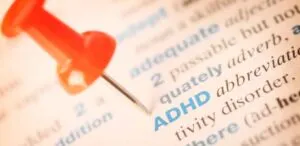An eating disorder is a psychological and behavioral disorder described by a severe and persistent disturbance in eating patterns. People with eating disorders usually have unhealthy relationships with food, weight, or appearance. Most frequently, mood disorders, anxiety disorders, obsessive-compulsive disorder, and issues with alcohol and drugs co-occur with eating disorders.
Types of Eating Disorders:
Eating problems can manifest in various ways and can even occur simultaneously in someone. Its types consist of:
Anorexia Nervosa
Anorexia nervosa is a condition where individuals engage in self-starvation and weight loss, which leads to low body weight. Those affected by anorexia nervosa severely limit their caloric intake, and some even go as far as starving themselves. This disorder is characterized by an unhealthy and severe obsession with weight loss and a refusal to eat the recommended amount of food based on their body type and level of physical activity.
Common symptoms of anorexia nervosa include
- Severe weight loss
- Restricting food intake
- Extreme fear of gaining weight
- Behaviors to avoid gaining weight
- Fatigue
- Insomnia
- Dizziness or fainting
- Obsession with thinness
- Weak hair and nails
- Cold intolerance and insensitivity
- Severe constipation
- Excessive exercise

Anorexia nervosa has two subtypes:
Restricting type. People usually lose weight through dieting, fasting, or intense exercise.
Binge-eating/purging type. Eating overly excessive amounts of food and then purging in an unhealthy manner.
Bulimia Nervosa
Individuals with bulimia nervosa face episodes of binge eating where they consume excessive amounts of food in a short period of time, often feeling a loss of control during these episodes. Afterward, they try to rid themselves of the calories through methods such as vomiting, using medication, or engaging in excessive exercise. This pattern of behavior can cause discomfort and nausea as the person eats quickly and beyond the point of fullness.
The following list contains possible symptoms of bulimia nervosa:
- Consuming large amounts of food at once
- Frequent urination shortly after meals
- Swollen Salivary gland
- Persistent pain in the throat
- Tooth decay
- Heartburn and reflux
- Abuse of diet pills
- Frequent diarrhea
- Feeling light-headed or faint as an effect of intense purging behaviors
- Self-esteem is impacted by body shape and weight
- Extreme dehydration
Bulimia nervosa is a condition that often develops during adolescence and early adulthood, and it impacts men and women differently.

Binge Eating Disorder (BED)
A person with a binge eating disorder has a loss of control over their eating. They consume a lot of food in a short length of time. However, they don’t expel food or burn off calories through binging. Instead, they experience uncomfortable satiety and could battle despair, regret, or guilt. Obesity, diabetes, hypertension, and cardiovascular disorders are just a few major health issues resulting from binge eating.
Common symptoms of binge eating disorder include
- Eating more quickly than normal
- Eating until you feel full
- Eating a lot of food even when not hungry
- Eating alone because one is ashamed of how much they are consuming
- Eating follows up with feelings of depression or extreme guilt
- Experiencing a loss of control during episodes of binge eating
Avoidant Restrictive Food Intake Disorder
A recently identified eating disorder called avoidant/restrictive food intake disorder (ARFID) is characterized by high pickiness and a chronic inability to achieve nutritional demands as a result of disturbed eating. Furthermore, food avoidance or restriction commonly begins in infancy or early childhood and may last through adulthood.
Pica
Pica is an eating disorder that involves consuming items that are not recognized to be food and do not have any nutritional value. Individuals with pica crave non-food substances such as paper, paint chips, soap, cloth, hair, chalk, metal, charcoal or coal, or clay.
A higher risk of poisoning, infections, gastrointestinal injuries, and nutritional deficits may exist in people with pica. Pica may be fatal, depending on what you ate.
Rumination Disorder
After eating, people with rumination problems frequently bring their food back up into their mouths, re-chew it, and then either swallow it whole again, spit it out, or both.
Other Eating disorders
- Night eating syndrome. People with this condition regularly overeat at night, frequently after waking up.
- Other specified feeding or eating disorders (OSFED). Any additional disorders that don’t fall under one of the above disorders but exhibit symptoms like those of an eating disorder are included in this category.
Who is at Risk for Eating Disorders?
Eating disorders can develop at any age during infancy, childhood, or adulthood. The idea that eating disorders mostly affect girls and women is untrue. Both boys and men are at equal risk. Your risk of developing an eating problem may be increased by certain factors, such as:
- Family history of eating disorders
- Any other psychological conditions
- Trauma history (physical, emotional, or sexual)
- Anxiety, sadness, or obsessive-compulsive disorder in the past (OCD)
- Dietary history
Other factors include:
- Diabetes (up to one-fourth of women with Type 1 diabetes develop an eating issue)
- Involvement in activities that focus on a slim appearance
- Major life changes
- Tendency to be a perfectionist

Eating Disorders Treatment
The type of eating problem you have, and your symptoms will determine how you are treated. Having an organized approach to eating disorder treatment can help you manage the symptoms, go back to a healthy weight, and regulate your physical and mental health.
Psychotherapy:
The most crucial element of treating eating disorders is psychotherapy. The ideal psychotherapy for your conditions might be determined by a mental health practitioner. It helps in developing healthy eating habits, achieving a healthy weight, and replacing bad eating patterns with good ones. Psychotherapy teaches you how to monitor your eating and your moods. It includes:
- Cognitive behavioral therapy. This kind of psychotherapy focuses on your eating disorder-related actions, thoughts, and emotions.
- Family-based therapy. During this therapy, family members will learn how to assist you in restoring appropriate eating habits and achieving a healthy weight until you can do it on your own.
Nutrition counseling:
An experienced licensed dietitian can assist in changing eating patterns and creating nourishing meal plans. Nutrition education may help you achieve a healthy weight by teaching how nutrition impacts your body and how your eating disorder affects your physical and nutritional health. Nutrition counseling practice meal planning and establish regular eating patterns.
Medications:
An eating disorder cannot be cured by medication. They work best in combination with psychological therapy. However, some patients with eating disorders also struggle with depression or anxiety. Antidepressants can aid in reducing the symptoms of anxiety or sadness, which usually accompany eating disorders.
Maudsley approach:
The parents of teens with anorexia benefit from this type of family treatment. Parents carefully supervise their children’s eating as they develop healthy eating habits. The main goals of including parents in this strategy are to promote and include parental involvement in their child’s healing journey.
Eating Disorders Complications
Eating disorders are the second most fatal psychiatric disorder, followed only by opioid use disorder. Your overall health may suffer as a result of severely limiting your caloric intake, throwing up, or vigorous exercise. With an untreated eating disorder, you run the risk of developing significant issues like:
- Cardiac disorders such as arrhythmia, heart failure, and others
- Organ failure and brain damage
- Tooth damage and osteoporosis
- Constipation and severe dehydration
- Acid reflux (gastroesophageal reflux disease or GERD)
- Issues with the digestive system
- Low blood pressure (hypotension)
- Irregular menstrual cycles and infertility
- Stroke
Novus Beginning Psychiatry: Your Path to Health and Wellness Starts Here!
We understand that navigating the complexities of mental health can feel overwhelming, but you don’t have to face it alone. At Novus Beginning Psychiatry, we’re here to support you every step of the way. Whether you’re seeking therapy, medication, or a combination of both, our compassionate professionals are dedicated to helping you find the path to a happier, healthier life.
Our highly skilled psychiatrists are experienced in a wide range of mental health conditions, including anxiety, depression, bipolar disorder, OCD, PTSD, ADHD, autism, and more. We offer evidence-based therapies that have been proven effective in helping individuals overcome their challenges. From cognitive-behavioral therapy (CBT) to couples/family therapy, we utilize the most up-to-date techniques to empower you on your healing journey.
We also recognize that medication is vital in managing certain psychological health conditions. Our team includes Dr. Nibras, who is a board-certified psychiatrist well-versed in medication management. He works closely with you to develop a comprehensive treatment plan, as we believe in the power of personalized care.
So, take the first step towards a brighter future. Contact us today to schedule an appointment. Our friendly staff is ready to assist you in finding a convenient time to meet with our dedicated professionals. Call (832)856-4718 and let us help you take charge of your mental well-being.
Medication Management For Psychiatric Wellness
At Novus Beginning Psychiatry, we’re dedicated to helping you unlock the power of effective medication management. Our team of psychiatrists has years of experience and understands the importance of finding the right balance for your mental health journey. We offer personalized and compassionate care, creating medication plans that are tailored to your unique needs. Our understanding of psychopharmacology allows us to provide the most advanced and evidence-based treatments available.
Our goal is to help you by providing the right medications to enhance your therapy outcomes, reduce your symptoms, and improve your overall well-being. We want to be your trusted partner on the path to a brighter future. Please don’t hesitate to contact us at Novus Beginning Psychiatry to experience the transformative effects of our comprehensive medication management approach.
Who is Dr. Nibras?
Dr. Sohail Nibras is a double board-certified psychiatrist in child, adolescent, and adult psychiatry. He completed his education at Saint Louis University and the American University of Integrative Science. He excels in treatments based on psychiatric care and therapeutic sessions and has experience treating dual psychiatric and substance use disorders. He is an assistant professor at the Menninger Department of Psychiatry and Behavioral Sciences at Baylor College of Medicine in Houston, Texas. He serves as an attending psychiatrist at Texas Children’s Hospital. He trains future psychiatrists and engages in scholarly research projects.
Visit us
Come and visit us at one of our locations in person or meet us via telepsychiatry/online!
We’re here to help in Texas, ready to meet you in person. If you’re unable to make it in person, don’t worry, we’re also available online, so you can meet us easily from the comfort of your own home. Whether you prefer to see us face-to-face or connect with us online, we’re here to assist you every step of the way.
Address in Sugar Land
120 Eldridge Rd Suite D, Sugar Land, TX 77478
Address in Katy
23410 Grand Reserve Drive, Ste. 401 & 402 Katy, Texas 77494



